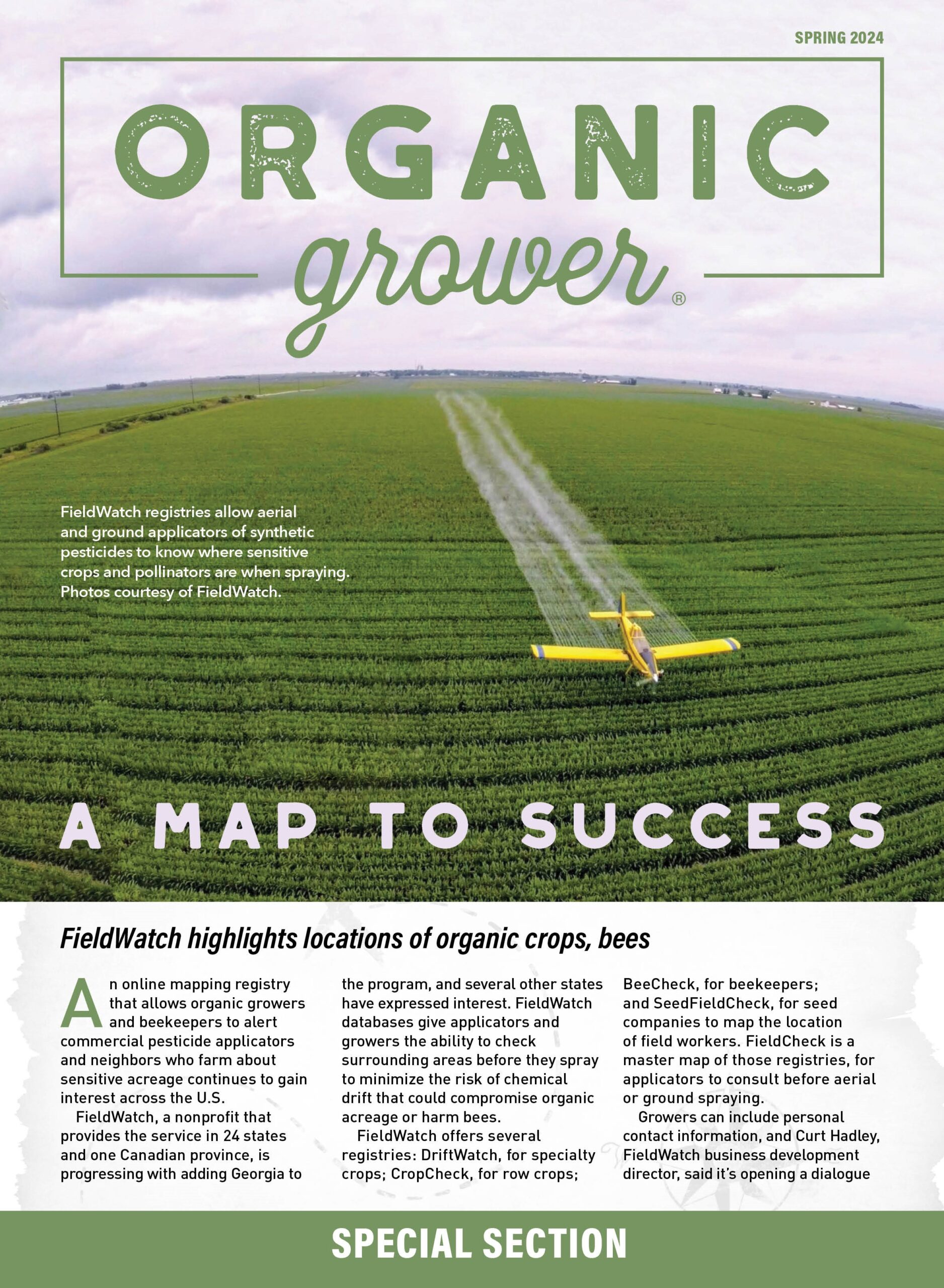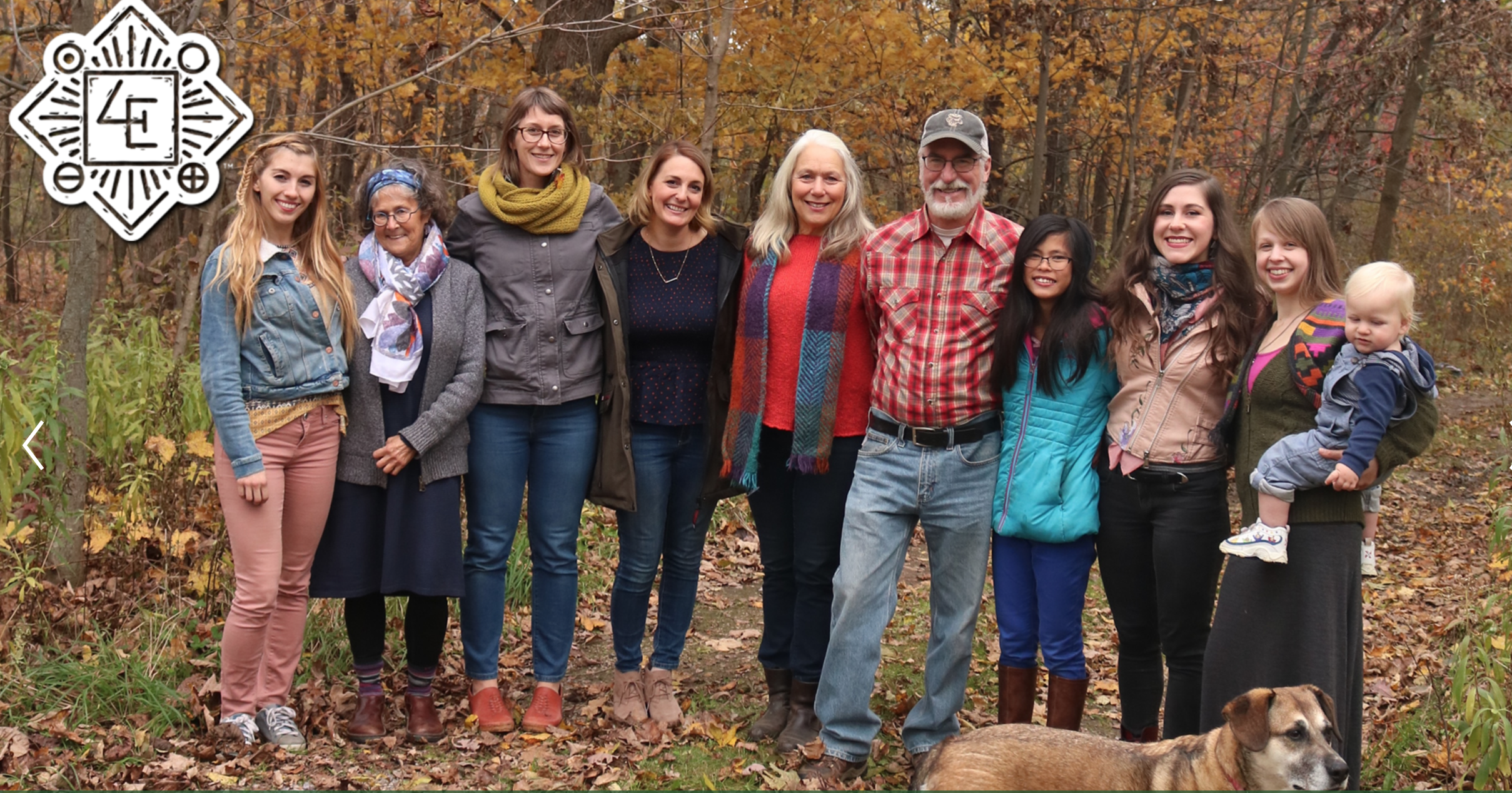
May 1, 2020
Natural-grown healers: Herb growers, processors honored at MOSES
Four Elements Organic Herbals’ Jane Hawley Stevens and her husband David are no strangers to Midwest Organic and Sustainable Education Service’s (MOSES) annual conference, having brought their certified organic herbal products – teas, balms and creams – to the MOSES exhibit hall for 30 years.
But in February, they took center stage as the organization honored them as the 2020 Organic Farmers of the Year.
“Their farm is a remarkable example of vision and innovation, having started in 1987 in Texas, and just a year later they started developing value-added products, in 1988, and only one year after that they were certified as organic, in 1989,” said MOSES board member Molly Rockamann.
All herbs are raised and processed on their own farm – now located in North Freedom, Wisconsin – and herb-drying heat lights run on solar power. The business is owned by Jane, although the couple work more or less equally. In accepting the award, the couple were accompanied onstage by their two daughters.
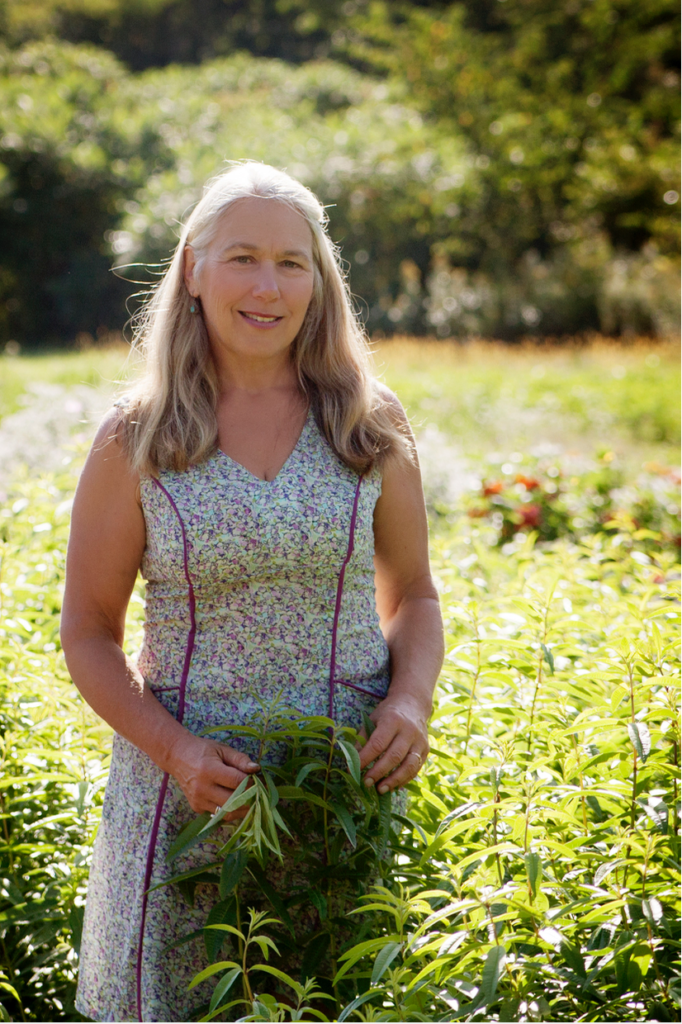
Photos: Four Elements
Hawley Stevens said the early commitment to organic growing played a major role in the growth of her business. Early on, she made only soaps, but a breakthrough came when she made herbal ear drops from mullein flowers that she said helped her young son.
“That was really the beginning of trusting herbs and seeing how they can help us,” she said.
Today she has a variety of creams, soaps, lip balms, salves, teas and other products. Her bestseller for more than 20 years has been “Look, Ma, no X-ma,” a skin cream that she developed for her daughter.
“When you see what plants can do … it’s just very humbling and beautiful,” she said. “I want to say there is a time for a doctor. I’m very grateful I have a physician and a doctor. But when you have a choice, it’s really nice to look at what herbal remedies are out there.”
How their gardens grow
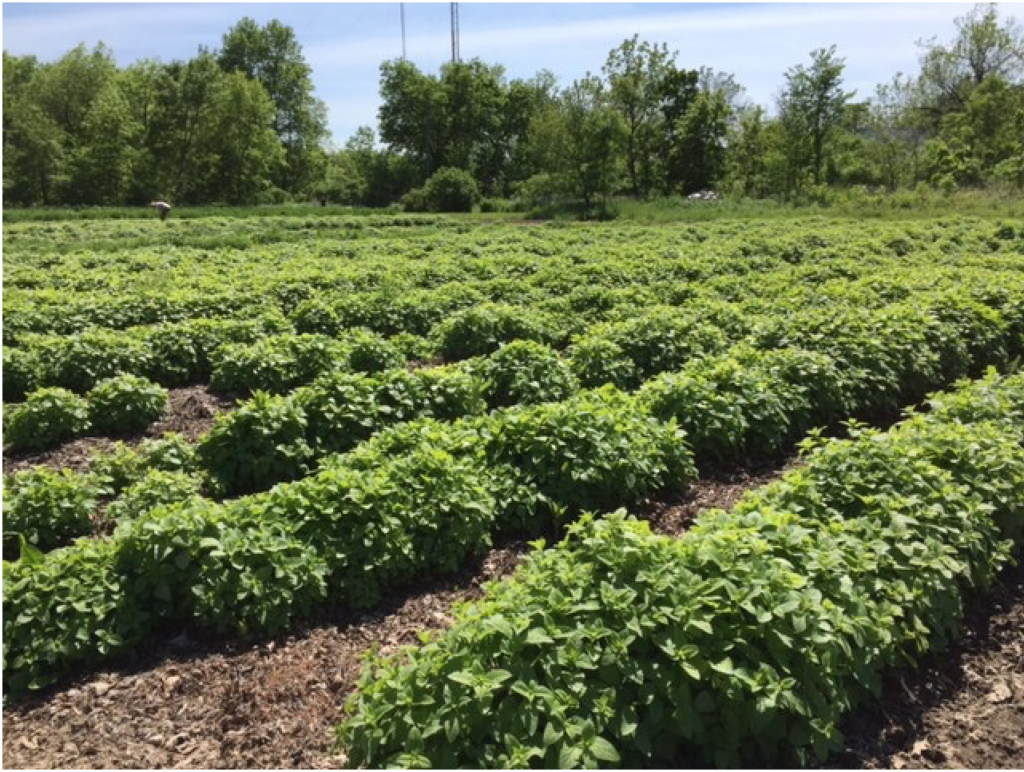
The couple operate a 130-acre farm in North Freedom, about an hour northwest of Madison, Wisconsin, having moved their operation from Texas in the 1990s.
The location is in what’s known as the Bear Boot Bluffs, an ancient mountain range. Today, there’s about 3 feet of topsoil on top of granite.
“If you dig down there, there are rocks the size of Volkswagens,” Hawley Stevens said. “We’ve been there since 1992, but my husband has done a fantastic job building the soils right from the start.”
The field rows are cover-cropped and tilled-under regularly. The family also raises some grass-fed beef, and cow manure from that operation builds the soils. Leaves collected from the Village of North Freedom are used as a mulch.”
“Our soil is really pretty fabulous,” Hawley Stevens said.
Planting of cold-tolerant crops begins around March 1 – they grow more than 200 types of herbs; Lemonbalm is a favorite with 28 rows. The Stevens family follows the frost-free dates and also plants by the moon cycles to get optimum soil conditions.
Most of the harvest is complete by Sept. 1, although a few crops like sage can take a freeze and are harvested even later. Her staff hand-harvest herbs with sharp knives or shears.
The couple also has side gigs – Jane as a teacher and public speaker, and David as a curator of the University of Illinois Arboretum. They have six employees who are part-time or seasonal.
The herbs are cut by hand and steam-distilled into hydrosols – the water-soluble parts of the plant – that can be incorporated into the value-added products. Six gallons, or a bushel of herb biomass yield about two gallons of distillation. Hawley Stevens said she’s never tried to get into selling essential oils – the fat-soluble parts of the herb plants – because the yield per biomass is much lower – a row of lavender plants would yield only a few teaspoons of oil.
Over 30 years, she’s adjusted her lineup of products to meet the market demand and include new products. For instance, a 2012 USDA grant for developing value-added products helped her expand into teas.
“I just move the plants around,” she said. “It’s the plants that do all the magic.”
Memories and Moses
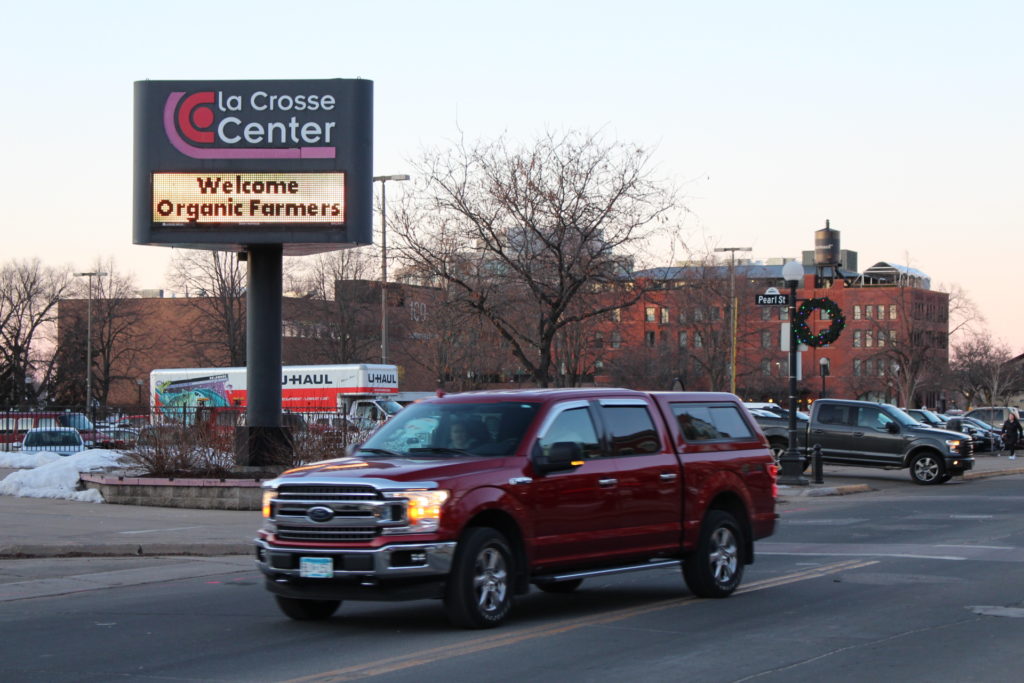
A lot changes in 33 years.
Four Elements was a vendor at one of the very first MOSES shows.’
“I guess I missed the very first one, but I’ve been at … like 30 out of 31,” Hawley Stevens said.
The early gatherings – which drew fewer than 50 people, took place in a single ballroom rented in a hotel. Stevens said that for years MOSES took place at Sinsinawa, an event space on Mississippi River run by a group of Catholic nuns, the Sinsinawa Dominican Sisters.
MOSES attendees loved the nature that surrounded that venue, she said, although the accommodations themselves were a bit spartan: shared bathrooms and rooms furnished only with small desks and single beds – “very single” beds. Today, the event packs out the city of LaCrosse’s downtown event center with thousands of attendees.
Her business has also changed.
“My labels were hand-stamped, and I colored them in with a colored pencil,” she said of her start in business. “I could sell that to Whole Foods at the time, because there were only two Whole Foods [stores] in the country at that time.” In fact, her first customer was the Whole Foods store in Dallas.
But those were the days when the retail market was strong and herbal products were just starting to catch on with consumers.
“I could walk in any store and they would buy my products because there were no natural products except for, like, an aloe,” Hawley Stevens said. Today, storefronts are narrowing the products they offer, natural products are offered by major distributors, and many retail chains require a large “free fill” – free initial first supply of product – to start selling it.
Today, she sells a lot of product through her own website, www.fourelementsherbals.com.
“I still have some Whole Foods [stores] that buy from me, but I never bought into the whole “Free Fill” thing,” she said.
But the bright side is that more people are interested in herbals.
“Organics and herbalism keep growing every year,” Hawley Stevens said. “People are kind of getting the picture: If you want health, you’ve got to make the right choices. It’s not like the government is there gatekeeping healthy choices.”
An Herbal Education
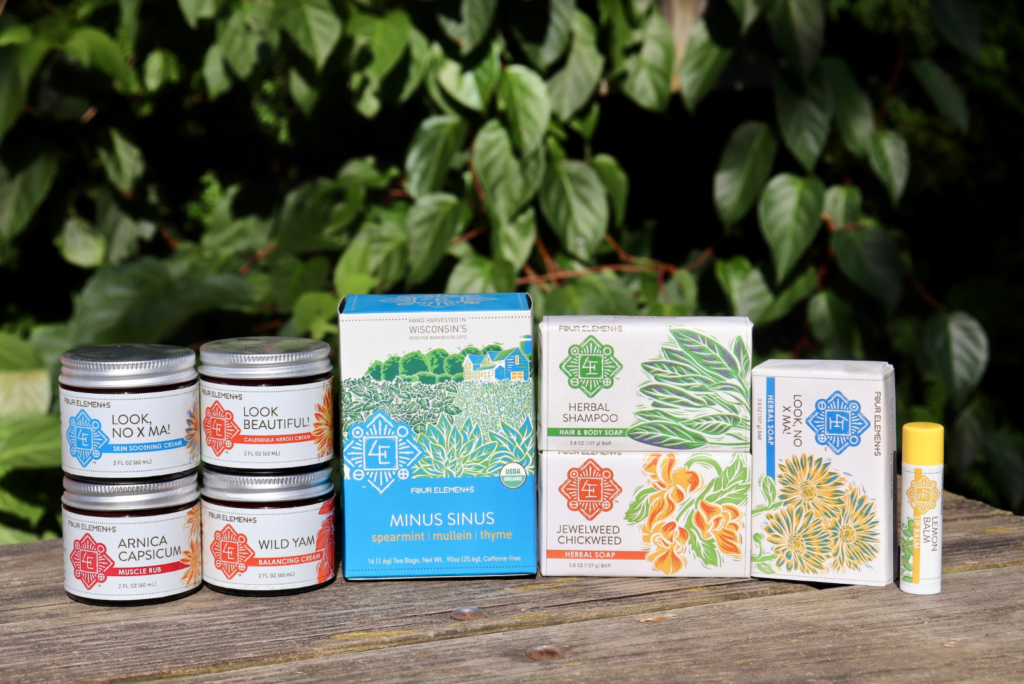
Hawley Stevens continues to advocate for the use of herbals for personal health.
“Who hasn’t had chamomile tea that has relaxed them?” she asked. “It’s not just coffee and sugar that have constituents. All plants have constituents, and these are things that have been tried since human beings were on the planet.”
Her background in herbals is leading to some work teaching and speaking publicly about their benefits. And she extended that advocacy work into her acceptance of her Farmer of the year award.
“Pharmaceuticals are ending up in our water supply,” she said from the stage. “You’re all organic farmers, you all care about healthy environments.”
She explained her comments later:
“I want all organic farmers to try organic herbs for healing, because I bet even in this industry less than half of these people use herbs for healing,” she said. “I really believe herbs are part of the solution for the health of people and the planet.”
Changemakers honored
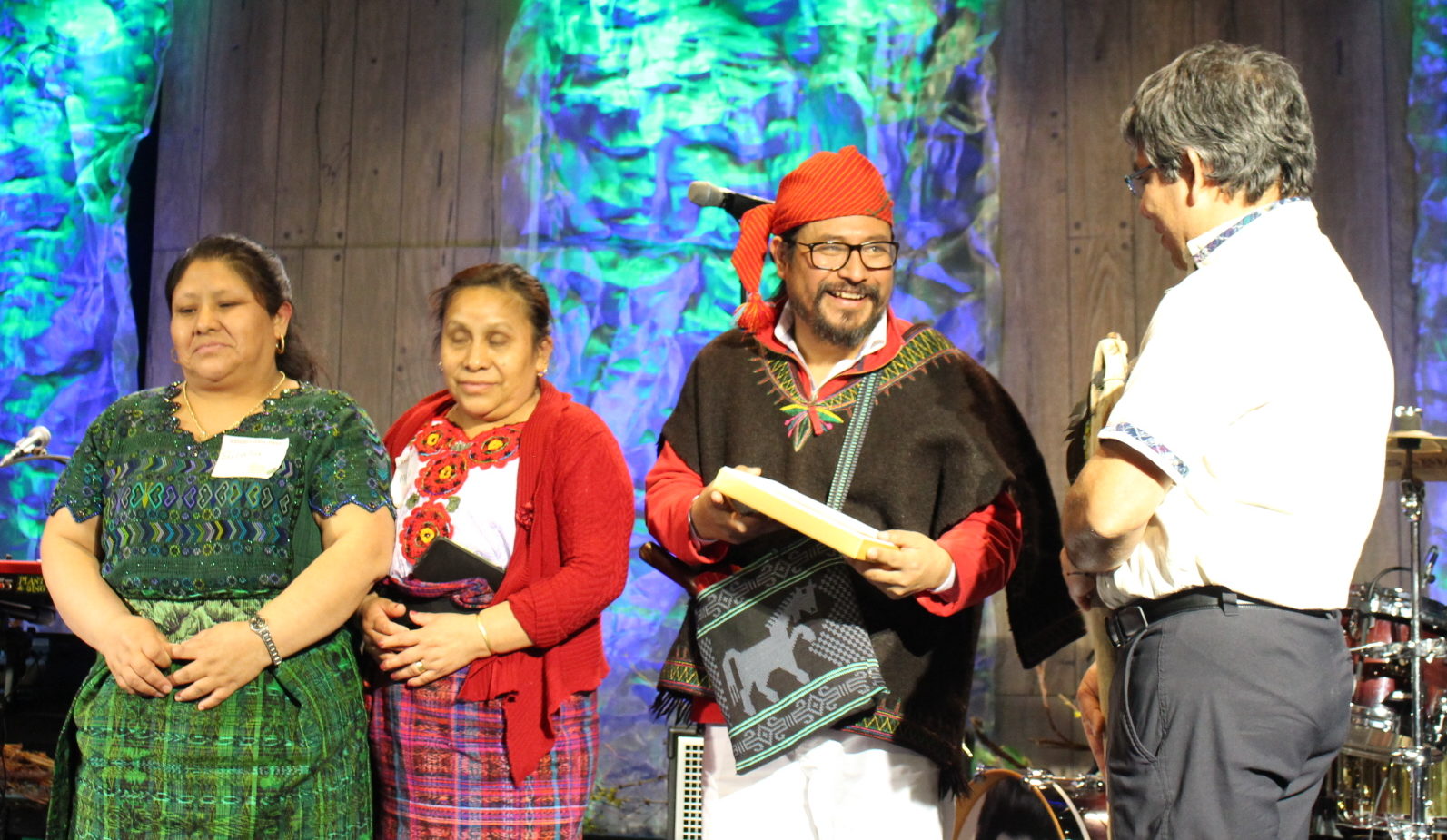
In addition to the Stevens family, MOSES leaders honored three different “Changemakers” for breaking down barriers and “empowering others to farm in ways that are environmentally responsible, socially just, and economically viable.”
Here are the three changemakers honored:
- Steve Acheson, an Iraq war veteran from Blanchardville, Wisconsin. He started a farm, Peacefully Organic Produce, helped create Wisconsin Veterans for Compassionate Care and the South Central WI Hemp Producers Cooperative.
- Loretta Livingston and Joy Schelble of the Bad River Food Sovereignty Program. They run a program to teach Native Americans in Wisconsin’s Bad River area to harvest, preserve and prepare wild foods as well as how to grow food in gardens and high tunnels.
- Reginaldo Haslett-Marroquin, a native Guatemalan who now lives in Northfield, Minnesota. He founded the Regenerative Agriculture Alliance, a group dedicated to “higher standards in food production and supply-chain management.” He accepted the award with representatives of the Mayan nation.
Top photo: Jane Hawley Stevens and her husband David, center, with their daughters, center-right, and staff. Photos: Four Elements

